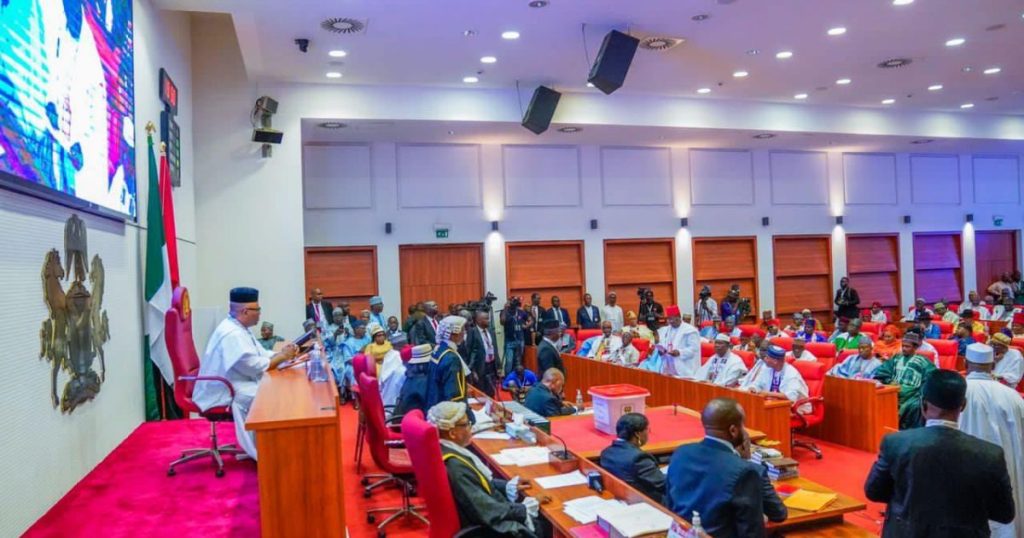The Nigerian National Assembly embarked on a crucial three-phase public hearing series to garner public input for its ongoing review of the 1999 Constitution. The final phase of this consultative process took place in Owerri, Imo State, focusing on gathering perspectives from stakeholders in the South-East region. Speaker of the House of Representatives, Tajudeen Abbas, represented by House Leader, Professor Julius Ihonvbere, outlined key reform proposals under consideration, emphasizing the legislature’s commitment to aligning its efforts with the aspirations of the Nigerian people. These proposals span a wide range of critical areas, including youth and women empowerment, enhanced roles for traditional rulers, strengthened grassroots governance, and increased youth participation in national development.
A central theme of the proposed constitutional reforms is the empowerment of traditional rulers. The House of Representatives is actively exploring avenues to constitutionally define the roles and responsibilities of traditional leaders, solidifying their authority within a democratic framework. This initiative seeks to recognize and integrate the unique cultural diversity of Nigeria into the governance structure, acknowledging the significant influence traditional rulers hold within their communities. By clarifying their responsibilities and empowering them within the constitutional framework, the National Assembly aims to foster greater collaboration between traditional institutions and elected officials, promoting more effective governance at the local level.
Strengthening grassroots governance also forms a key pillar of the proposed reforms. The National Assembly emphasizes its commitment to working closely with state Houses of Assembly and local government councils to ensure effective devolution of power and resources. This decentralization of authority aims to bring governance closer to the people, enhancing responsiveness and accountability. By empowering local institutions, the legislature strives to create a system where communities experience tangible benefits of governance in their daily lives, fostering greater civic participation and a stronger sense of ownership in the democratic process.
Recognizing the crucial role of youth in nation-building, the National Assembly has prioritized expanding opportunities for young Nigerians. Through initiatives such as legislative mentorship programs, leadership training, and skills development, the legislature seeks to equip the next generation with the tools and knowledge necessary to assume leadership roles. This proactive approach acknowledges that the vibrancy, creativity, and energy of young people are essential for the renewal and resilience of democratic institutions. By fostering their engagement in civic processes, the National Assembly aims to ensure that the voices and perspectives of the youth are integrated into the decision-making processes that shape their future.
The issue of gender representation in the political landscape also emerged as a prominent focus of the constitutional review process. Speaker Abbas highlighted the stark disparity between male and female representation in the National Assembly, emphasizing the need for more balanced participation. The Special Reserved Seats for Women Bill seeks to address this imbalance by creating designated seats for women in the legislature. This initiative, the Speaker argued, is not merely symbolic, but a concrete step towards deeper inclusiveness and harnessing the proven leadership capabilities of women. Drawing comparisons with countries like Rwanda, Kenya, and South Africa, where significant progress has been made in female representation, the Speaker urged stakeholders to support this crucial reform, ensuring Nigeria does not lag behind in the global movement towards gender equality in politics.
The Owerri public hearing concluded the three-phase series of consultations, which commenced in Abuja with representatives from all 36 states and continued in Zaria with representatives from the 19 northern states. This comprehensive approach underscores the National Assembly’s commitment to engaging directly with citizens, actively listening to their concerns, suggestions, and aspirations. By incorporating diverse perspectives from across the country, the legislature aims to ensure that the revised constitution reflects the collective will of the Nigerian people, fostering a more inclusive and representative democracy. This participatory approach to constitutional review signals a significant step towards strengthening democratic governance and enhancing the responsiveness of the Nigerian political system to the needs and aspirations of its citizens.


